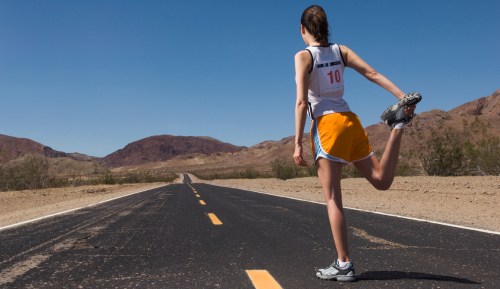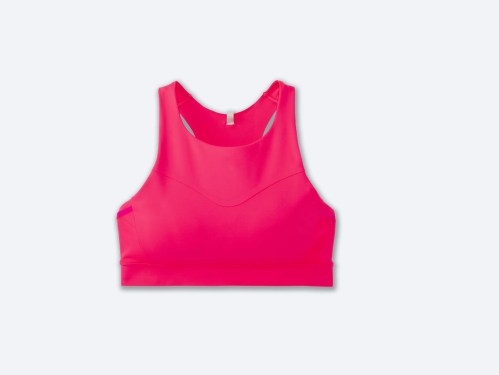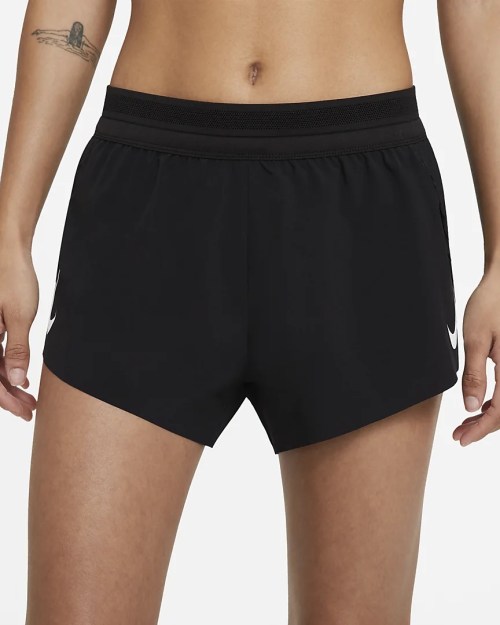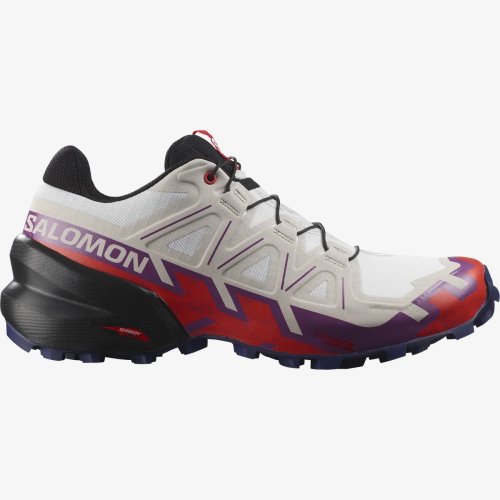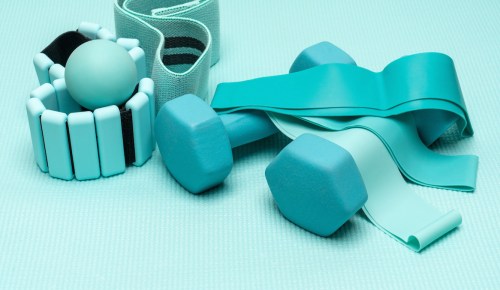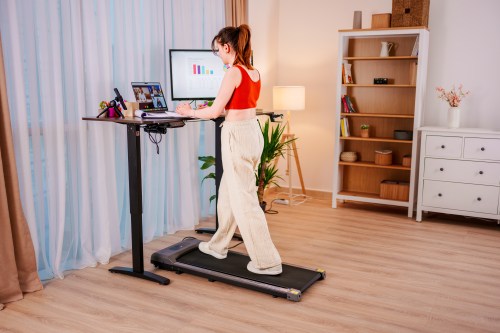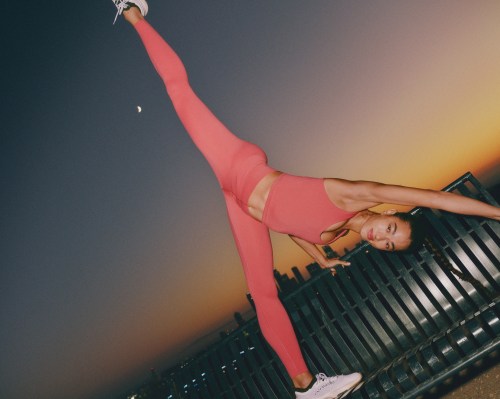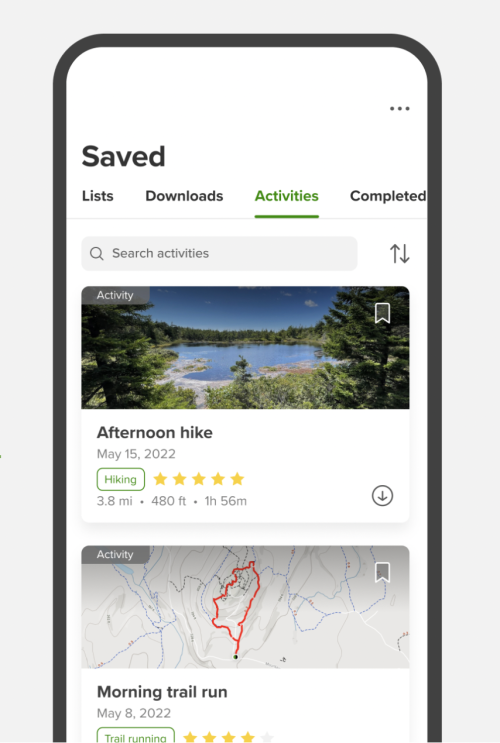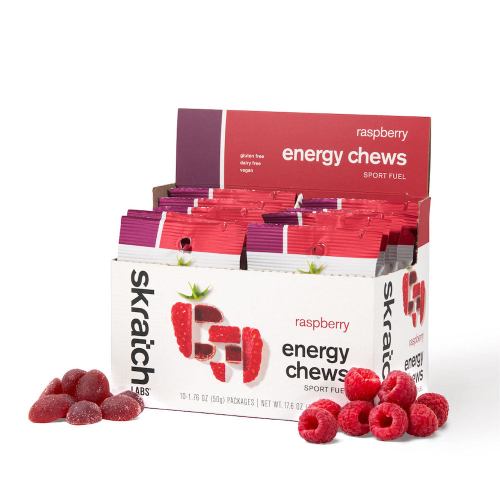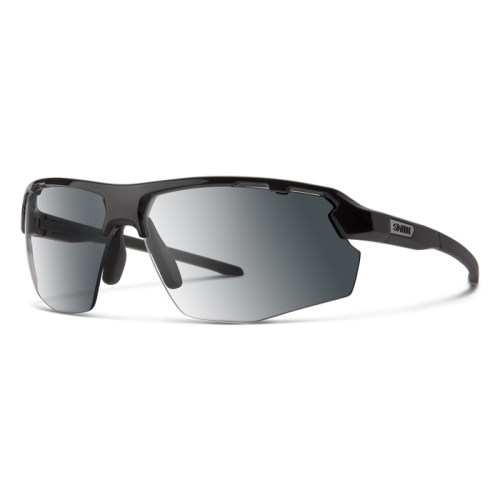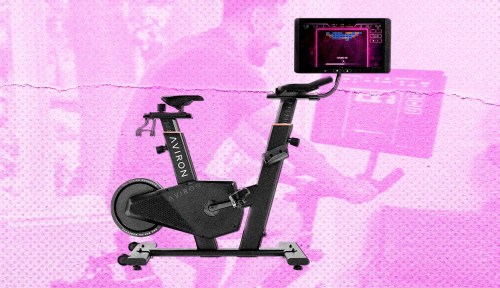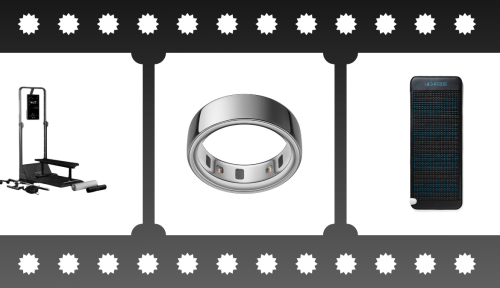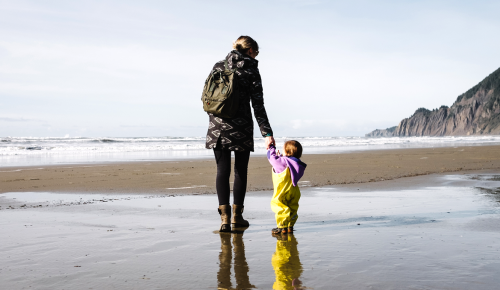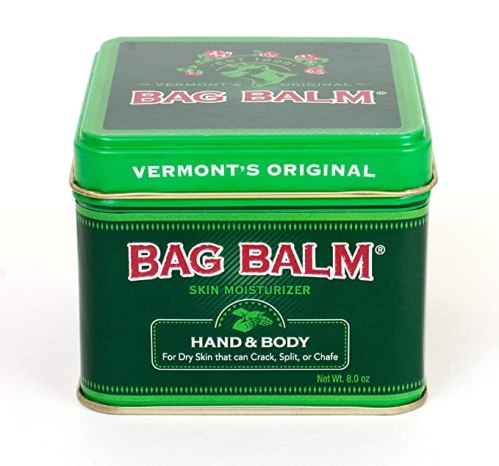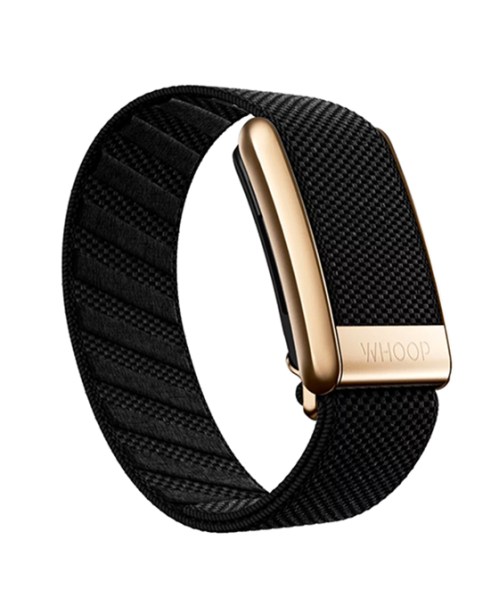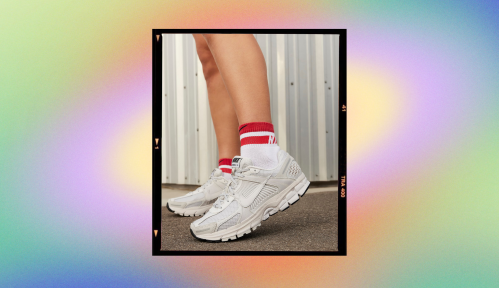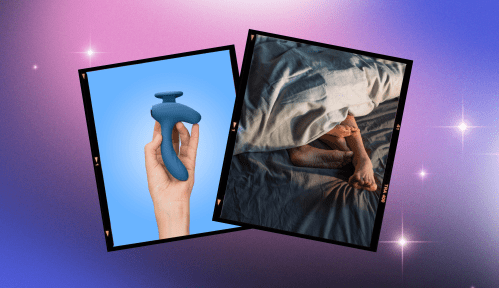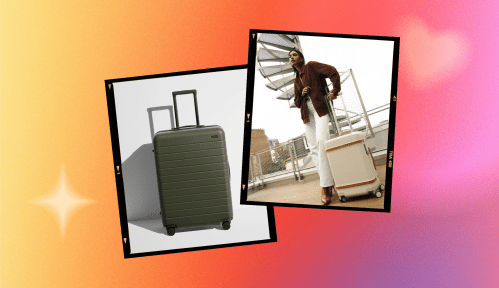Our editors independently select these products. Making a purchase through our links may earn Well+Good a commission
Meaghan Praznik, a triathlete and head of communications and partnerships at the hiking app, AllTrails, knows a thing or two about running gear. She’s been competing as an amateur in big-name endurance races since 2015 and has racked up some serious awards ever since, including winning overall female champion at races like the Ironman 70.3 Superfrog 2017, Ironman Cozumel 2019, and Ironman 70.3 Santa Cruz 2022. If you’re not familiar with Ironman, these are long, grueling triathlons, most of which incorporating a 2.4-mile swim, a 113-mile bike race, and a 26.2-mile run (aka, a marathon). Needless to say, you need to be prepared.
Experts in This Article
Meaghan Praznik is the head of communications at hiking app AllTrails.
“It’s a gear-intensive sport,” she says. “The list of must-haves could honestly be never-ending.” Still, there are some pieces of running gear that stand out from the pack. And if they’re good enough for someone who wins Ironman competitions, we think they’re probably good enough for casual runners, too.
Whether you’re one of the brave souls who’s out to win an Ultra Marathon, or are just trying to survive your after-work jog around the block, here’s all the clothing, snacks, and tech a three-time Ironman champion swears by, bound to keep up with you mile after mile.
1. A ‘holy grail’ sports bra
As an athlete, Praznik has tested a lot of sports bras. Her “holy grail,” however, is the Brooks Drive 3 Pocket Run Bra ($50), which she says performs miles better than any other products she’s trained in.
“It’s super breathable—the fabric is just like butter. There is no chafing, it’s thin yet supportive,” Praznik says. “If I do want to run just in my sports bra, I feel more comfortable because there’s more coverage, and it keeps me feeling really secure and locked in, but it’s also super lightweight.”
The pockets don’t hurt, either. True to its name, there are three handy pockets made into each sports bra: A bonded phone pocket in the back near the nape of the neck, and two mesh side pockets near both cups (which are removable, btw). All are bonded and seam-cut, so there’s no chafing or discomfort. “I use it to hold gels or whatever snacks I need to bring with me for long runs,” she says. “It’s hands-down the best sports bra I’ve come across ever.”
Brooks, Drive 3 Pocket Run Bra — $50.00
Available sizes: 30A/B-40D/E
Colors: 11
2. Breezy running shorts
Praznik also swears by Nike’s ultra-breezy AeroSwift Running Shorts ($70), which are designed with a high thigh slit and barely-there fabric to allow complete freedom of movement.
“I have bigger, more muscular thighs, and can have a hard time finding shorts that fit around my thigh [that] also will move with me enough, and don’t constrict me,” Praznik says. “The super high slit doesn’t constrict my movement at all. And you can either keep them more high waisted or roll them down—both just fit really, really well.” Aside from the fit, they’re loaded with features to keep you comfy, stride after stride, including a drawstring waistband with built-in ventilation to maximize airflow, as well as a drop-in pocket at the back to store personal items. The only downside Praznik notes is that they definitely are on the shorter side, but if you’re comfortable with less coverage, they’re a surefire bet.
Nike, AeroSwift Running Shorts — $70.00
Available sizes: XS-XL
Colors: 3
3. Salomon Speedcross trail sneakers
To train for Ironman, Ultra, and other long-distance races, Praznik has a ton of road running shoes that she cycles through to help strengthen her feet. But she does a lot of her training on trails, too, to help build muscular endurance, stay nimble, and switch things up. The *one* shoe that has never rotated out of her roster for nearly 10 years is the Salomon Speedcross ($140), which she uses for nearly all of her trail training and some competitions.
“I do not own a shoe—trail or road—that is more comfortable than these. They’re amazing,” she says. “I’ve done 50-mile trail runs in these, trail running camps in Crested Butte, and while my body was pretty shattered [throughout], my feet managed to feel fresh and comfortable.”
The versatile shoes come full of trail-ready features, including a grippy outsole, durable upper, and Quicklace system for getting them on and off fast. The one feature Praznik loves, though, is the “laces garage,” which come in most Salomon shoes. “When putting on the shoes, tighten the laces with the pulley, then tuck them into the pocket on the tongue of the shoe so you never have to worry about missing a beat in your stride to stop and tie your laces, or worse, tripping over them.”
Salomon, Speedcross 6 Trail Running Shoes — $140.00
Available sizes: Women’s 5-11, in half sizes
Colors: 5
4. The AllTrails App
Sure, Praznik might be a little biased (she does work for AllTrails, after all) but she swears by the app for finding new trails, planning routes, and keeping track of where she’s been. “Running on the trails is not only great for my mental state and a welcomed break from pounding the pavement, but it also forces me to hold back more, control the pace, and focus on a nice and easy, Zone-2 run,” she says. She’s also a world traveler and has raced in places like Cozumel, Hawaii, and Colorado where the app comes in handy for exploring. “I love the app because it’s great for mapping out new routes, exploring new trails, and making sure I never miss a turn when venturing out to new areas.”
AllTrails, AllTrails+ — $36.00
Subscriptions available at $3/mo or $36/yr.
5. Plenty of snacks
Ask any endurance athlete—diet can make or break a run performance. “It’s really important that you not only eat during your race, but also in the training leading up to it to help train your stomach and figure out what won’t give you any GI issues,” she says. “I aim to take in 250+/- calories per hour (in the form of food and hydration) for any activity that is over 1.5 hours.”
Praznik explains that she eats the same thing before every big run and workout so her body knows what to expect on race day. Usually, she’ll eat a multi-serving size of Picky Oatmeal, and pack along some extras on her workouts, too. “These have a great ratio of carbs to protein to fat that give me that slow burn energy and help keep me full,” she says. She also enjoys Skratch Labs‘ chews, which offer a tasty combo of tangy and sweet. “Many athletes are particularly adverse to sweet things when you are pushing your body, making it even more difficult to get calories in, but the sourness of these chews helps mitigate that,” she says. Yum.
Skratch Labs, Energy Chews (Pack of 10) — $24.00
Flavors: 6
6. Sun protection
Praznik is a woman after our own hearts and always packs ample sun protection when she’s training outside, including a lightweight, breathable hat and SPF. “I love the Supergoop sunscreens and try to use sunscreen with zinc,” she says. As a swimmer, she tends to stick with reef-safe mineral sunscreens, which are safer for sea critters.
Supergoop!, Zincscreen SPF 40 — $44.00
7. Well-fitting sunglasses
Praznik also swears by Smith’s protective eyewear for running and cycling. When something is on your face for 25+ miles, you want to make sure it fits right and doesn’t bounce around or dig into your temples. “I love the entire Smith line. I wear Smith helmets and sunglasses—both fit my smaller head and face well but still provide great coverage,” she says. “My Smiths wrap around my face well, are lightweight, and, with the Chromapop lens technology, means that I have a clear line of sight ahead of me no matter what environment I’m training or racing in.”
Smith, Resolve Running Sunglasses — $189.00
Colors: 7
8. Bag Balm
You don’t need to be a champion Ironman racer to know that chafing sucks. To prevent rashes and rubs when she’s running and cycling, Praznik always keeps a jar of Bag Balm ($10) handy. “I actually showed up to a race and forgot my anti-chafe stick that I was using. My friend with us and she dug into her diaper bag and was like, ‘Trust me. This is what I’ve been using for diaper rash,'” she says. “Both the baby and I walked away totally unscathed that day.” Just a forewarning: The smell is on the more intense side (it’s medicinal-y), but it does wear off.
Vermont's Original, Bag Balm — $10.00
9. Whoop
“Like any stereotypical triathlete, we love data. And I love wearing a Whoop and all the data it gives me!” says Praznik. Sleep, recovery, her menstrual cycle, biometrics—Praznik can track everything using the Whoop wearable. “It’s an essential tool in helping me determine when I can kick it up a notch, or when I need to back off. My coach has access to my account, so he can look at it with me and helps me adjust my workouts accordingly.”
Whoop, Whoop 4.0
Subscriptions start at $30/mo.
Sign Up for Our Daily Newsletter
Get all the latest in wellness, trends, food, fitness, beauty, and more delivered right to your inbox.
Got it, you've been added to our email list.
